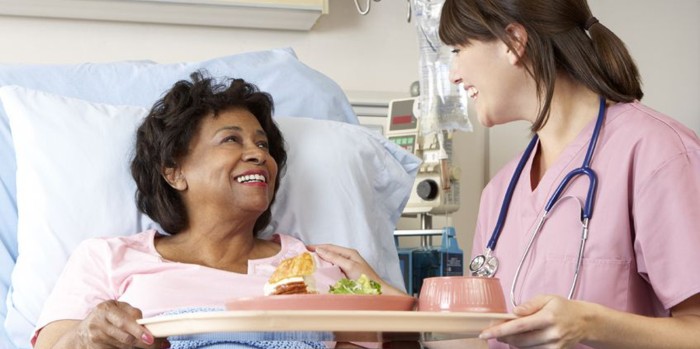The Cutting Edge of Medical Technology Content, Community & Collaboration
It is important to ensure food safety in hospitals

Hospitals being what they are – where patients of almost all kinds visit or stay – are very potent sources of infection. Infection can arise from any part of the hospital. They can spread from patients to patients, from caregivers to patients, from patients to caregivers, from patients to support or administrative staff and vice versa, and so on. An often overlooked source of infection and contamination is the food that comes into hospitals.
Food safety in hospitals is a very important element of hygiene
First, an understanding of food safety in the context of hospitals is necessary. Food safety in hospitals is described as the scientific way by which food is prepared, handled and stored in hospital settings. Any food that is prepared in hospital kitchens are, like food prepared in other places such as canteens, hotels and restaurants and even homes, sourced from outside. This food comes from suppliers whose hygiene has to be ensured. Food hazards can come in many forms, including, but not limited to:
- Biological
- Chemical
- Physical
- Allergenic Hazards an
Several other contributing factors
It is in the process of procuring materials for food and preparing it in hospital kitchens that a major part of food safety in hospitals is compromised. There has to be a thorough mechanism to ensure that all these producers and suppliers follow regulatory requirements in ensuring that the food they produce and supply to hospitals is clean and safe. Literally thousands of patients get infected from over 250 kinds of bacteria, parasites and viruses when they consume food prepared in hospitals.
Findings of a recent study
It is pertinent to recall the findings of study done in May 2014 in Geneva, Switzerland. It carried out an examination of chicken supplied to and prepared in a hospital in this city. An astounding four fifths of these chickens were known to have been infected with E.coli, leading to its possible transmission to patients. Timely preventive measures ensured that the risk of infection was minimized. If this is the state of hospitals in highly advanced nations, one can imagine the condition in developing countries around the world.
Steps to ensure food safety in hospitals
Hospitals need to take a number of important steps to ensure food safety in hospitals. Some of these include:
Click Here for More Information: http://bit.ly/1OcHFXm
Views: 29
Comment
© 2025 Created by CC-Conrad Clyburn-MedForeSight.
Powered by
![]()

You need to be a member of MedTech I.Q. to add comments!
Join MedTech I.Q.